Introduction
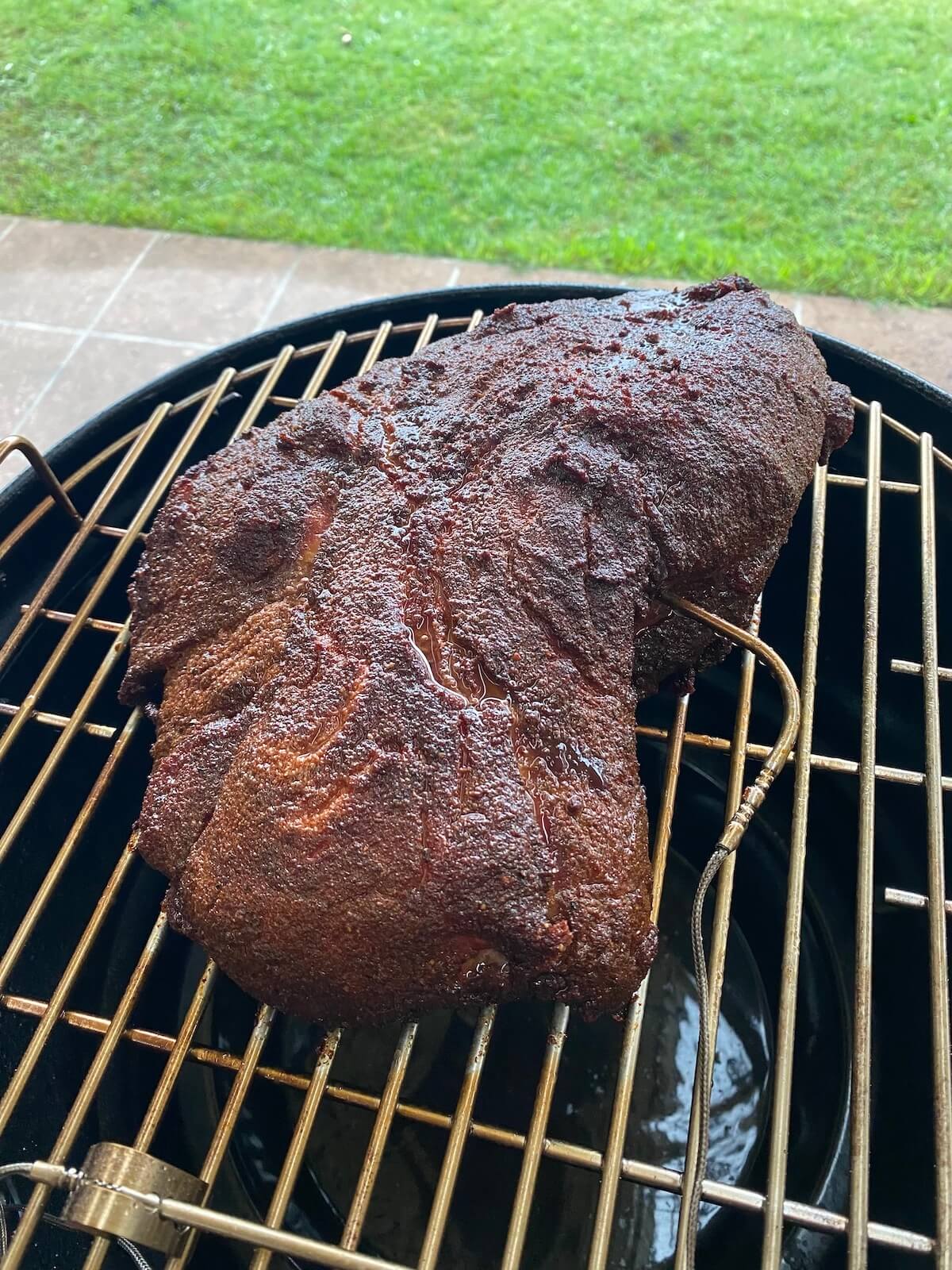
Cooking a brisket to perfection requires careful attention to timing and technique. The ideal cooking time for a brisket ensures a juicy and tender result. However, overcooking this meat can lead to a dry and tough texture, resulting in a disappointing dining experience. In this article, we will explore the factors that affect brisket cooking time and the signs to look out for when it is overcooked. We will also provide helpful tips and recommendations to avoid overcooking brisket and achieve delicious results every time. So, let’s dive into the world of brisket mastery and avoid any BBQ disasters!
Overview Of The Importance Of Proper Cooking Time For Brisket
Proper cooking time plays a critical role in achieving a tender and flavorful brisket. By carefully monitoring and controlling the cooking time, you can ensure that the meat reaches the perfect level of doneness. Overcooking the brisket can lead to a dry and tough texture, ruining the overall dining experience. On the other hand, undercooking may result in a chewy and underwhelming meal. Therefore, understanding the importance of proper cooking time is essential to ensure a delicious and satisfying brisket every time.
Common Misconceptions About Overcooking Brisket
Many people believe that overcooking brisket will result in a more tender and flavorful meat. However, this is a common misconception. In reality, overcooking brisket can lead to a dry and tough texture. Additionally, some individuals may think that cooking brisket for a longer period of time will enhance its flavor, but this is not the case. Overcooking can actually cause the flavors to become unbalanced and overpowering. It is important to cook brisket properly and avoid overcooking to ensure a delicious and enjoyable dining experience.
Factors Affecting Brisket Cooking Time
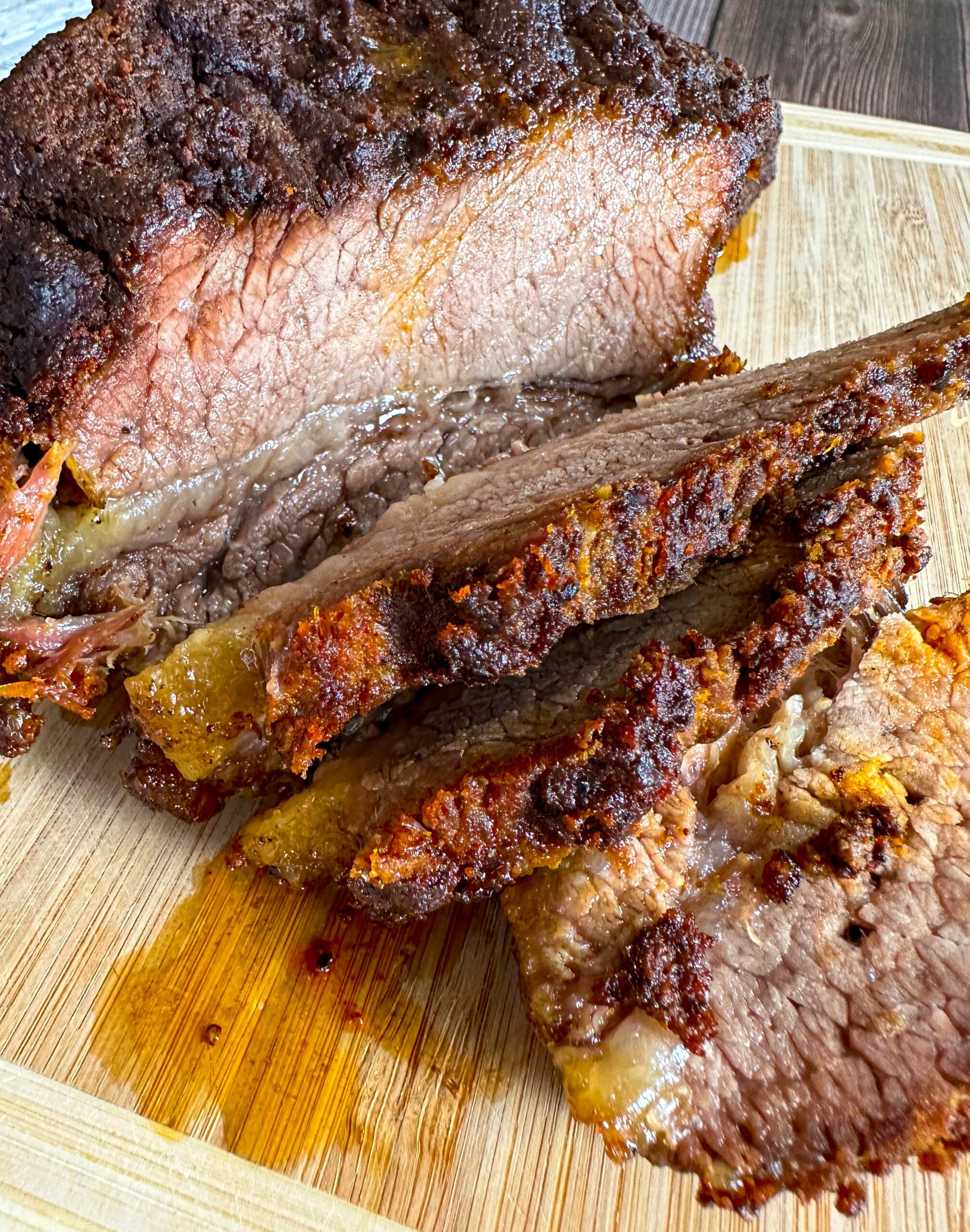
Several factors can affect the cooking time of brisket. The size and thickness of the brisket play a significant role, as larger and thicker cuts will require more time to cook thoroughly. Additionally, the temperature and heat source need to be considered. Cooking brisket at a lower temperature will result in a longer cooking time, while using higher heat can reduce the cooking time. It is important to adjust the cooking time accordingly based on these factors to ensure that the brisket is cooked to perfection.
Size And Thickness Of The Brisket
The size and thickness of the brisket are important factors that can affect the cooking time. Larger and thicker cuts of brisket will naturally require more time to cook thoroughly compared to smaller ones. This is because heat needs to penetrate through the entire piece of meat to ensure it is cooked evenly. It is crucial to consider the size and thickness of the brisket when determining the cooking time to avoid undercooking or overcooking. Adjusting the cooking time accordingly based on these factors will help ensure a perfectly cooked and tender brisket.
Temperature And Heat Source Considerations
When cooking brisket, temperature and heat source play a crucial role in achieving the perfect result. Using a reliable meat thermometer is essential to monitor the internal temperature of the brisket accurately. This ensures that it is cooked to the desired level of doneness without overcooking. Additionally, choosing the right heat source is important to maintain a consistent cooking temperature. Whether you’re using a smoker, grill, or oven, it’s vital to control the heat and avoid drastic temperature fluctuations. This helps prevent the brisket from cooking too quickly or unevenly, resulting in potential overcooking.
Signs Of Overcooked Brisket
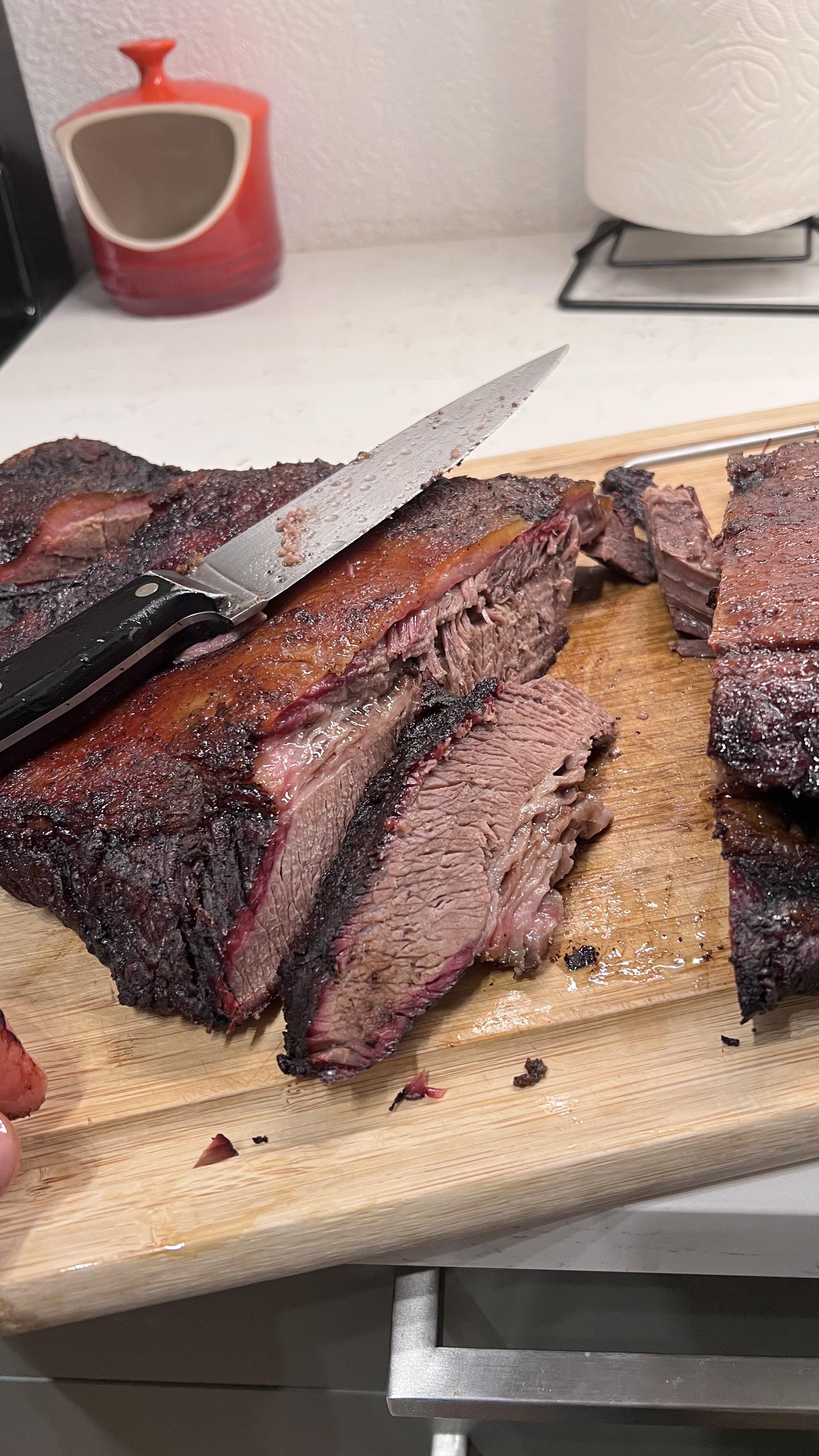
Signs of overcooked brisket can be easily recognized through several factors. Firstly, the temperature of an overcooked brisket might exceed 210°F, resulting in a dry and tough texture. The appearance of the brisket may also indicate overcooking, with the meat appearing overly brown or even burnt. In terms of taste, overcooked brisket can lose its natural flavors and juiciness, becoming bland and unpleasant. It is important to keep an eye out for these signs to avoid the disappointment of an overcooked brisket and ensure a delicious and tender result.
Dry And Tough Texture
When brisket is overcooked, it can result in a dry and tough texture. The excess cooking time causes the moisture within the meat to evaporate, leaving behind a dry and chewy consistency. This can make the brisket difficult to chew and unpleasant to eat. The natural tenderness and juiciness of the meat are lost, resulting in a less enjoyable dining experience. To avoid this issue, it is essential to monitor the cooking time and temperature carefully to ensure a moist and tender brisket. Remember to use a meat thermometer to achieve the perfect doneness without overcooking.
Loss Of Flavor And Juiciness
When brisket is overcooked, it not only affects the texture but also the flavor and juiciness of the meat. Overcooking can result in a loss of the natural beefy flavor that makes brisket so delicious. The excessive cooking time breaks down the fats and proteins, causing the meat to become dry and tasteless. Additionally, the loss of moisture leads to a lack of juiciness, making it difficult to savor every bite. To preserve the flavor and juiciness of the brisket, it is crucial to ensure proper cooking time and temperature control.
Techniques To Avoid Overcooking Brisket
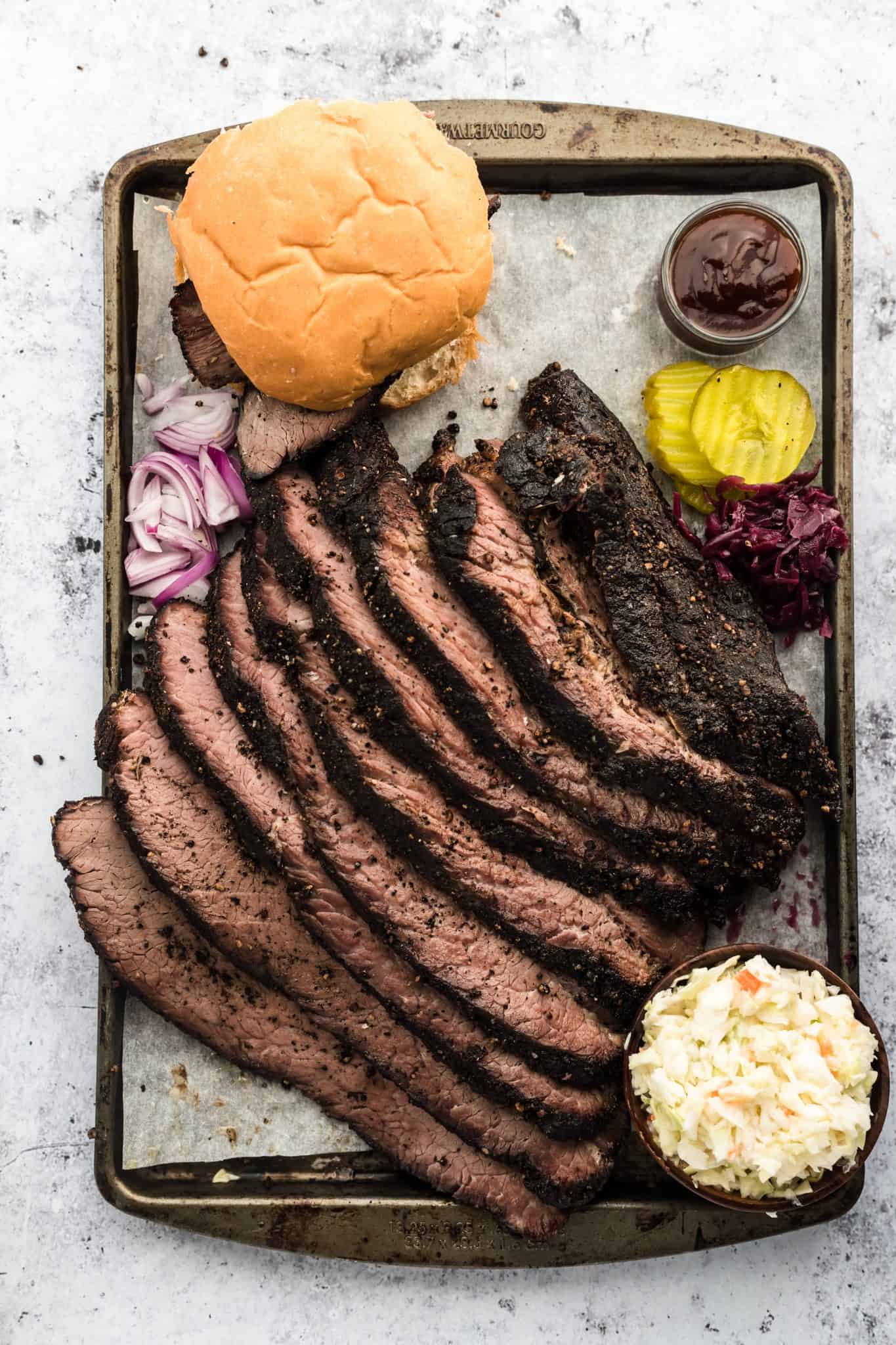
One technique to avoid overcooking brisket is to use a meat thermometer for accurate temperature monitoring. This allows you to gauge the internal temperature of the meat and ensure it reaches the desired level of doneness without going beyond. Additionally, wrapping the brisket in foil or butcher paper during the cooking process can help prevent excessive drying and retain moisture. Resting the brisket after cooking also allows the juices to redistribute throughout the meat, resulting in a more tender and flavorful final product. These techniques help maintain the texture and juiciness of the brisket while preventing overcooking.
Using A Meat Thermometer For Accurate Temperature Monitoring
Using a meat thermometer is an essential technique to avoid overcooking brisket and achieve the perfect level of doneness. By inserting the meat thermometer into the thickest part of the brisket, you can accurately monitor its internal temperature. This ensures that you remove the brisket from the heat source at the right time, preventing it from becoming dry and tough. With a meat thermometer, you can achieve precise cooking results and serve a tender and succulent brisket every time. Make sure to invest in a reliable and accurate meat thermometer for optimal cooking success.
Wrapping Or Resting To Prevent Excessive Drying
Wrapping or resting the brisket is a technique that can help prevent excessive drying during the cooking process. By wrapping the brisket in aluminum foil or butcher paper, you create a barrier that traps moisture and helps retain its juiciness. This method, known as the Texas crutch, can be done when the brisket reaches an internal temperature of around 160°F (71°C). Once wrapped, you can continue cooking until the brisket reaches its target temperature. After cooking, it is important to let the brisket rest for at least 30 minutes before slicing. This resting period allows the juices to redistribute throughout the meat, resulting in a moist and tender brisket.
Brisket Cooking Time Recommendations
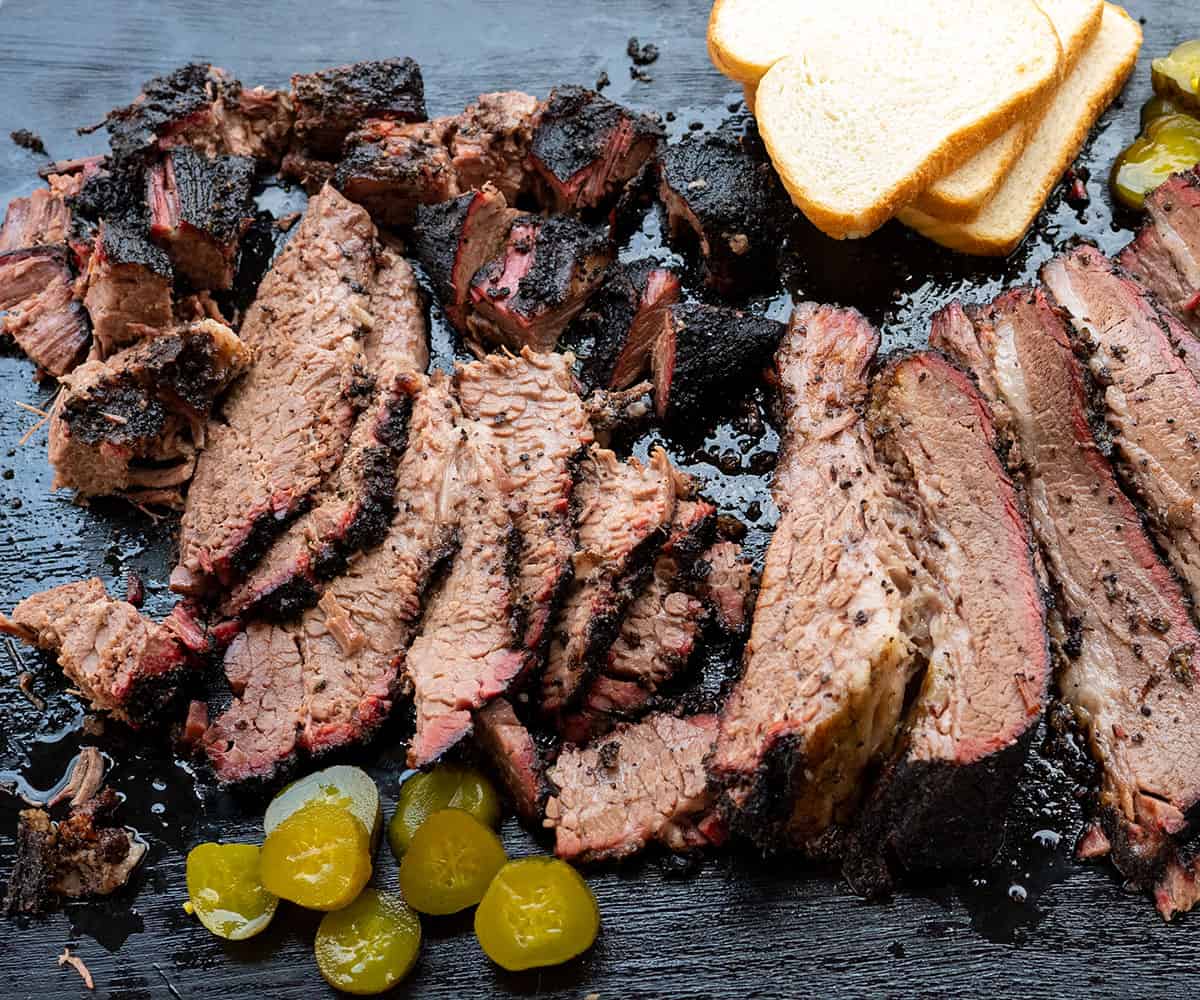
Cooking time for brisket can vary depending on its weight and the cooking method being used. As a general guideline, a rule of thumb is to cook the brisket for around 1 hour and 15 minutes per pound (500g) at a temperature of 225°F (107°C). However, it’s important to remember that these are just estimates, and it’s always best to rely on a meat thermometer to determine the doneness of the brisket. Adjustments to the cooking time may also be necessary based on personal preferences for the level of tenderness and flavor desired. It’s recommended to start checking the internal temperature of the brisket after it has been cooking for a few hours to ensure it doesn’t overcook.
Cooking Time Guidelines Based On Weight And Cooking Method
When cooking brisket, it is important to consider its weight and the cooking method being used. As a general rule of thumb, a brisket should be cooked for approximately 1 hour and 15 minutes per pound (500g) at a temperature of 225°F (107°C). However, these are just estimates, and it is crucial to use a meat thermometer to determine the doneness of the brisket. Adjustments to the cooking time may also be necessary based on personal preferences for tenderness and flavor. It is recommended to start checking the internal temperature of the brisket after a few hours of cooking to avoid overcooking and ensure a delicious result.
Tips For Adjusting Cooking Time Based On Personal Preferences
When it comes to cooking brisket, personal preferences for tenderness can vary. If you prefer a softer and more tender brisket, you can increase the cooking time slightly. On the other hand, if you prefer a firmer texture, you can decrease the cooking time. It’s important to keep in mind that adjusting the cooking time will also affect the level of moisture in the meat. So, consider your desired level of juiciness when making these adjustments. Trust your taste buds and experiment with different cooking times to find the perfect balance of tenderness and flavor.
Conclusion
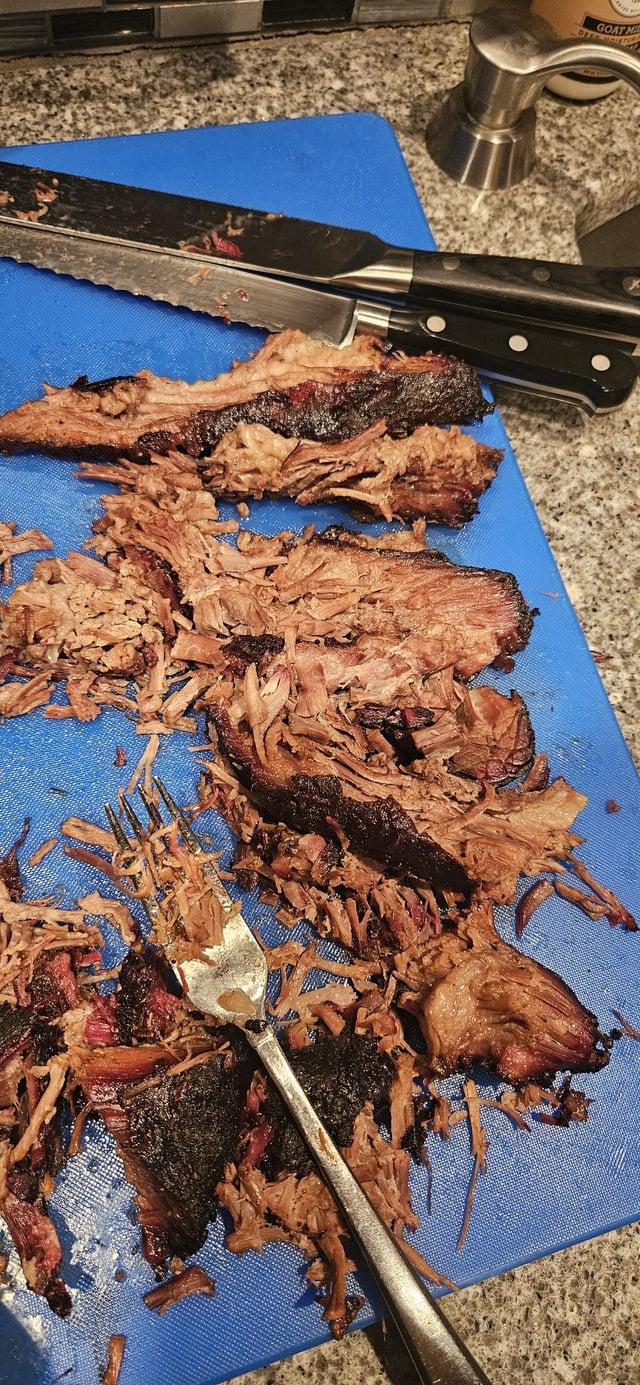
In conclusion, properly cooking brisket is crucial to achieving a delicious and tender result. Overcooking can result in a dry and tough texture, leading to a loss of flavor and juiciness. It is important to monitor the cooking time and use techniques such as using a meat thermometer and wrapping or resting the brisket to prevent overcooking. Additionally, personal preferences for tenderness can be considered by adjusting the cooking time slightly. By avoiding common mistakes and following proper cooking techniques, you can ensure that your brisket is cooked to perfection and enjoyed by all.
Importance Of Properly Cooking Brisket For A Delicious And Tender Result
Properly cooking brisket is crucial to achieving a delicious and tender result. Overcooking can lead to a dry and tough texture, resulting in a loss of flavor and juiciness. By cooking the brisket just right, it allows the fat to render and melt, ensuring that the meat stays moist and tender. The right cooking time and techniques, such as using a meat thermometer and wrapping or resting the brisket, can help maintain the perfect balance of tenderness and flavor. By mastering the art of cooking brisket, you can create a mouthwatering BBQ experience that will be enjoyed by all.
Common Mistakes To Avoid When Cooking Brisket
When it comes to cooking brisket, there are a few common mistakes that should be avoided to ensure a delicious and tender result. Here are some key points to keep in mind:
- Overcooking: Cooking brisket for too long can result in a dry and tough texture. It is important to monitor the cooking time and follow the recommended guidelines.
- Using high heat: Cooking brisket at high temperatures can cause it to cook too quickly and become tough. It is best to cook brisket low and slow to allow the collagen to break down and create a tender result.
- Not resting the meat: Resting the brisket after cooking allows the juices to redistribute and ensures a moist and flavorful end result. It is recommended to let the brisket rest for at least 20-30 minutes before slicing.
- Cutting against the grain: Slicing brisket against the grain helps to ensure tenderness. Cutting against the grain helps to break up the muscle fibers and results in a more enjoyable eating experience.
By avoiding these common mistakes, you can greatly enhance the flavor and tenderness of your brisket. Happy cooking!
Can You Overcook Brisket? – Frequently Asked Questions
Q: Can you overcook brisket?
A: Yes, it is possible to overcook brisket. Brisket is a tough meat cut that requires slow cooking at low temperatures to break down the tough connective tissues and become tender and flavorful. However, if it is cooked for too long or at too high a temperature, it can become dry and tough.
Q: How can you tell if brisket is overcooked?
A: When brisket is overcooked, it will lose its juiciness and become dry and stringy. The meat might also be difficult to slice, and the texture may resemble a chewy beef jerky. Overcooked brisket can also have a grayish color and lack the desired caramelized crust.
Q: What happens to the taste of overcooked brisket?
A: Overcooked brisket tends to lose its natural flavors and can taste bland. The extended cooking time can cause the flavors to become muted and the meat to lose its richness. The undesirable texture and lack of moisture also affect the overall taste experience.
Q: Is there any way to salvage overcooked brisket?
A: While it is challenging to fully salvage overcooked brisket, there are a few things you can try. You can add some flavorful sauce or gravy while serving to help moisten the meat and add some taste. Slicing the meat thinly against the grain can also make it slightly easier to chew.
Q: How can you prevent overcooking brisket?
A: To prevent overcooking brisket, it is crucial to monitor the cooking process carefully. Use a reliable meat thermometer to ensure that the internal temperature reaches the desired doneness without going over. Cooking brisket low and slow at around 225°F (107°C) will help break down the collagen and achieve a tender result.
Q: What is the ideal internal temperature for brisket?
A: The ideal internal temperature for brisket can vary depending on personal preference, but a commonly recommended target is 195°F (90°C) to 205°F (96°C). At this temperature range, the connective tissues have broken down, resulting in a tender and juicy texture.
Q: How long should you cook brisket?
A: The cooking time for brisket can vary depending on the size and thickness of the cut. As a general guideline, allow for about 1 to 1.5 hours of cooking time per pound of brisket at the recommended temperature of 225°F (107°C). However, it is essential to monitor the internal temperature and tenderness regularly.
Table: Internal Temperature and Texture Guide for Brisket
| Internal Temperature (°F/°C) | Texture |
|---|---|
| 140°F (60°C) | Rare, tough |
| 160°F (71°C) | Medium-rare, firm |
| 180°F (82°C) | Medium, slightly tender |
| 195°F (90°C) | Tender, easily sliced |
| 205°F (96°C) | Very tender, falls apart |
Remember, practice and experience will play a crucial role in achieving the perfect doneness and tenderness for your brisket.
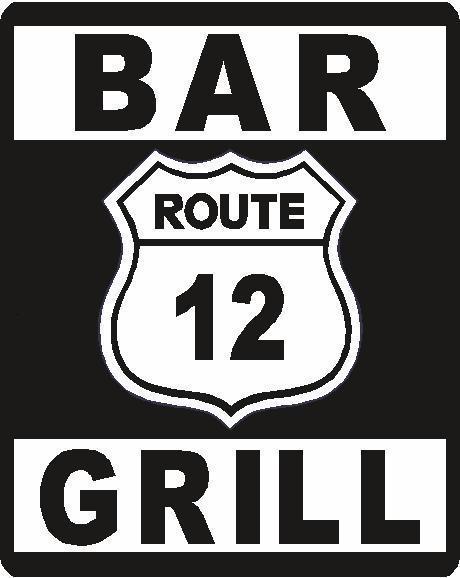
Come for The Burgers… Stay for The Beers!